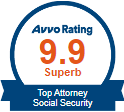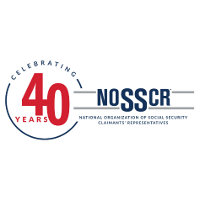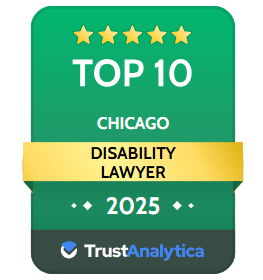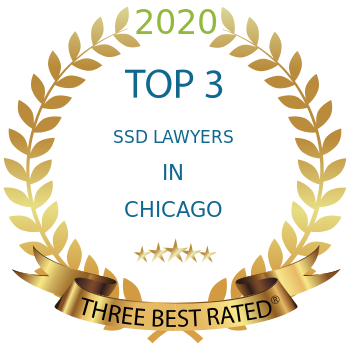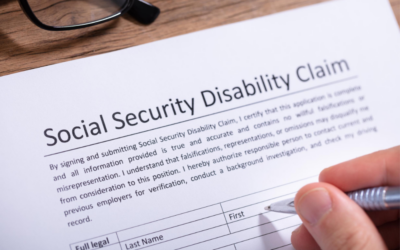Trusted Social Security Disability Law Firm
Over 35 Years Experience
Free Case Evaluation
No Recovery, No Fee
Skilled, Compassionate, Dedicated
Get a Free Evaluation
Client Testimonials
Frequently Asked Questions
How can I speed up the processing of my Social Security Claim?
To speed up your Social Security Disability claim, submit a complete and accurate application with all required medical records and documentation. A good approach would also be to make the application online and promptly respond to all SSA requests. For some conditions, like those on the Compassionate Allowances List or terminal illnesses, formally request that the SSA include you in their fast-track programs.
In case you are having a challenge, one of the best ways is to hire an experienced Chicago disability attorney to help you streamline the process. An attorney will ensure proper documentation, identify expedited programs, and handle appeals efficiently, thus increasing approval chances.
Can I work while applying for Social Security Disability benefits?
Yes, you can work while applying for Social Security Disability benefits. However, your total earnings from your work must be lower than the Substantial Gainful Activity (SGA) limit, currently at $1,550 per month for non-blind individuals in 2025. If your earnings go beyond the limit, you are most likely to be disqualified based on the assumption that you can perform substantial work.
Navigating work restrictions and SGA rules can be complex, often requiring legal guidance from a legal expert. Before taking any steps, it is advisable to seek the opinion of a disability attorney. A disability attorney can clarify how part-time work affects your claim and ensure your application is in line with the SSA requirements.
What are my options if my Social Security benefit claim is denied?
If your Social Security Disability claim is denied, the law provides leeway for an appeal. You can request a reconsideration within 60 days, where a new reviewer evaluates your case, or proceed to a hearing before an Administrative Law Judge. If you still have a problem with the hearing outcome, you can escalate the matter to the Appeals Council or file a federal court case.
As you pursue the appeals process, be informed that the process is complex and carries strict deadlines, often necessitating a lawyer’s expertise. An attorney can strengthen your case with additional evidence and represent you effectively at hearings.
How can I strengthen my Social Security Disability case if I have a mental health condition?
Strengthening a Social Security Disability case for a mental health condition requires comprehensive and reliable medical documentation. Ensure you provide detailed records from recognized psychiatrists or therapists, including diagnoses, treatment plans, medications, and therapy notes. Demonstrate how your condition impairs daily functioning, such as difficulty concentrating or maintaining relationships. If possible, avail statements from family or coworkers about observed limitations.
If you have been undergoing consistent treatment, provide all the information, as such information is key to showing the severity and persistence of your condition.
The SSA’s evaluation of mental health claims is a complex process, though. It has a very strict criterion for proving disability. If you have to handle the process on your own, completing residual functional capacity forms accurately and meeting deadlines can be daunting and, therefore, may require legal guidance. A disability attorney will help you put together compelling evidence and properly present the same to maximize your chances of approval.
What is Social Security disability technical denial?
A Social Security Disability technical denial occurs when a claim is rejected for non-medical reasons, such as insufficient work credits, earning above the Substantial Gainful Activity (SGA) limit ($1,550/month for non-blind individuals in 2025), or failing to provide required documentation. These denials often stem from errors in the application process or not meeting eligibility criteria, like the duration of work history required for SSDI.
Understanding and addressing technical denials can be complex, as they involve specific SSA rules and deadlines. Correcting application errors or appealing a denial requires precise documentation and timely action. Legal assistance may help navigate these technicalities, ensuring eligibility requirements are met and appeals are properly filed to improve approval chances.
Recent News
Now Is the Time to Show Support for Organizations Like CMAA
Right now is a tough time for immigrants and refugees in the United States. Beyond the everyday struggles of living in a new country, the COVID-19 pandemic has placed extra -- and unwarranted -- pressure on this community. That's why it's so important to have...
Will Trump’s Executive Order Impact Social Security Disability Claimants?
On Saturday, August 8, President Trump signed four executive orders supposedly designed to provide financial relief to those suffering due to the coronavirus pandemic. One of those orders is a payroll tax cut, and Social Security Disability claimants might be...
Disability Fund’s Health Improves: 13 More Years of Full Benefits!
Good news from the Social Security Board of Trustees. In their annual report for 2020, the Board announced that Federal Disability Insurance (DI) Trust Fund's financial health improved again. It will now be able to pay 100% of benefits until 2065. That's 13 years...







